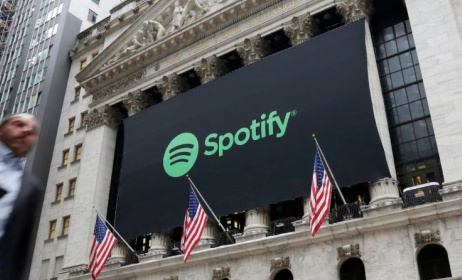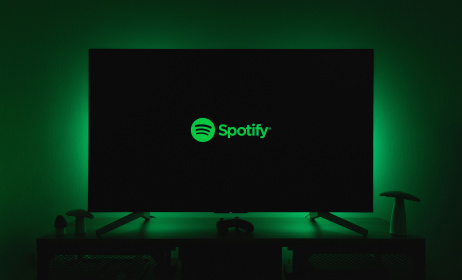Spotify faces scrutiny over advertising weaknesses
Spotify’s advertising business has come under criticism, with a new report describing it as the company’s “Achilles’ heel.”
 The assessment, published by Business Insider, highlights concerns from advertising executives about the music streaming platform’s performance in the ad sector.
The assessment, published by Business Insider, highlights concerns from advertising executives about the music streaming platform’s performance in the ad sector.
The assessment, published by Business Insider, highlights concerns from advertising executives about the music streaming platform’s performance in the ad sector. While Spotify’s reliance on paid subscriptions is well known, its recent advertising results have raised questions about growth in that area.
In the second quarter of 2025, Spotify reported advertising revenue of $525.6 million (€453m), down 1% compared to the same period last year. The decline came despite the platform adding 10 million ad-supported users in the quarter, bringing its total to 433 million.
Spotify has been expanding its video content and investing in podcasts, including pay-outs to creators through a new partner programme. In June 2024 it launched an in-house Creative Lab, while in April 2025 it introduced an ad exchange incorporating artificial intelligence.
However, the company has recently seen the departure of senior advertising executives. Global advertising head Lee Brown left for DoorDash, and Ed Couchman, who oversaw advertising sales in the UK and Northern Europe, joined Netflix.
According to Business Insider, some advertising agencies are dissatisfied with Spotify’s customer service, citing longer response times following staff cuts. Daniel Granger, founder of audio-focused agency Oxford Road, said that responses from Spotify can now take days rather than hours.
Spotify has disputed this, saying its average response time is between three and six hours, with a goal of resolving issues within 48 hours.
Pricing has also drawn criticism. A podcast publisher quoted in the report described a rate of $8 to $9 per 1,000 ad impressions on Spotify’s Megaphone platform as too high. Spotify said the figure does not reflect actual pricing, which it claims is often higher due to factors such as seasonal demand.
The report also noted industry concern over Spotify’s decision to reduce its investment in exclusive podcast deals. Meanwhile, separate to the findings, questions remain over the platform’s handling of adult or borderline-illegal podcasts that continue to appear on its service.



























Commentaires
s'identifier or register to post comments